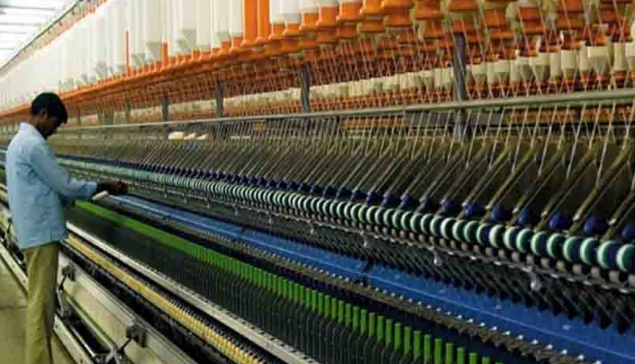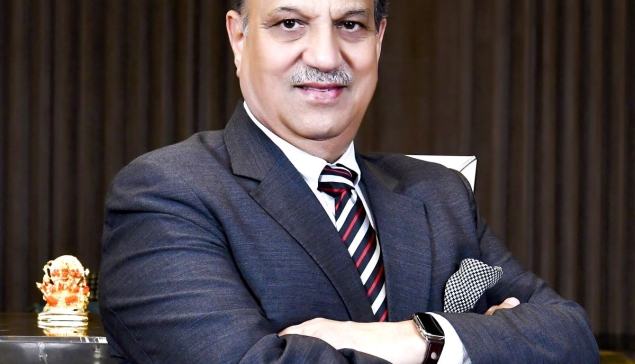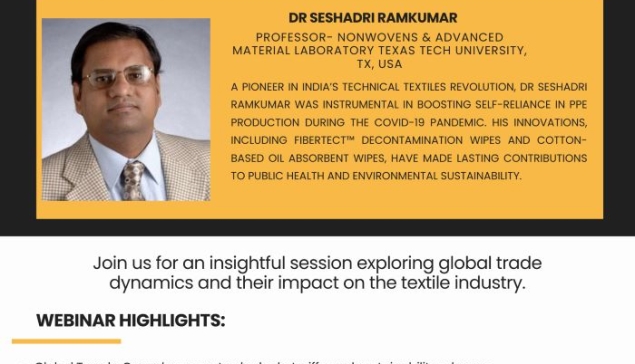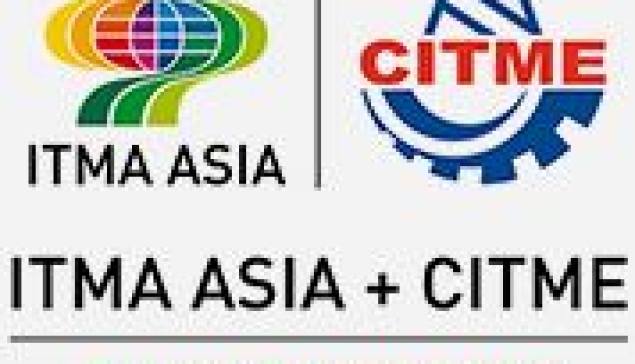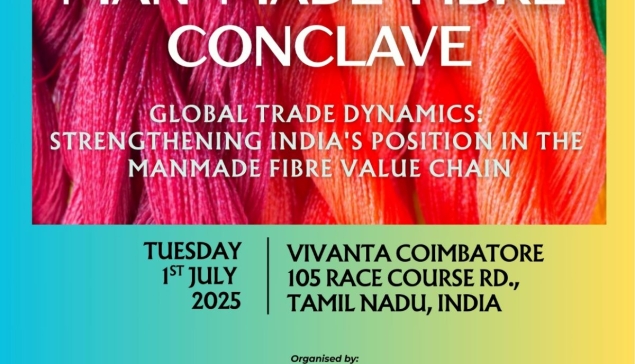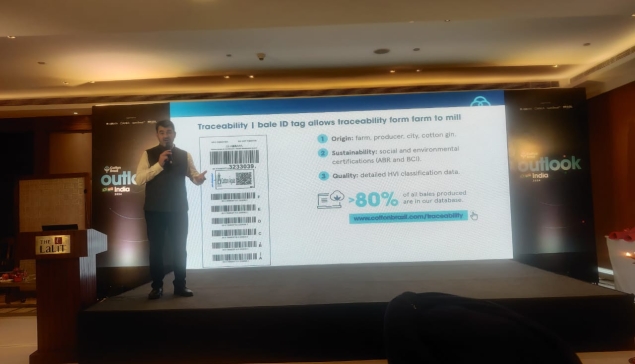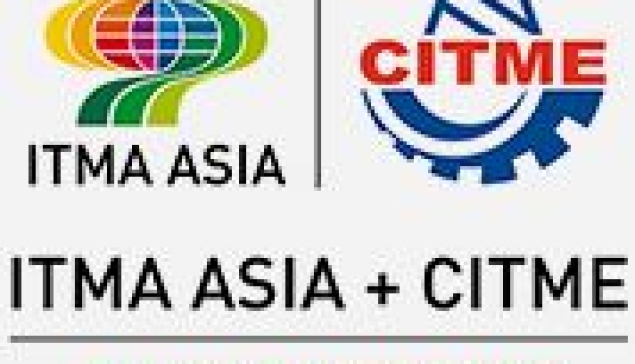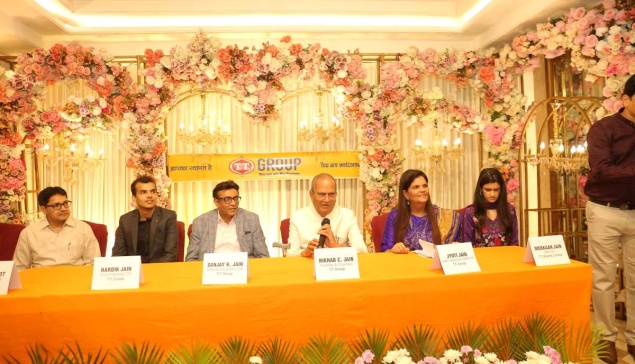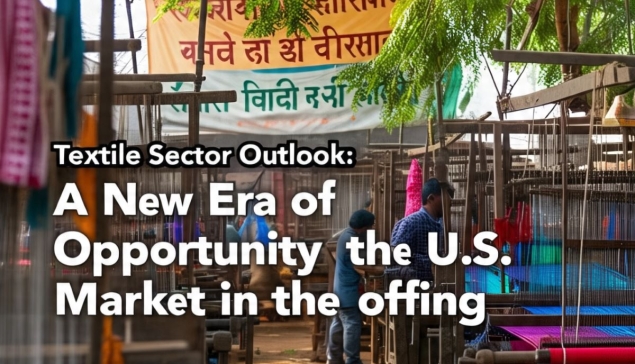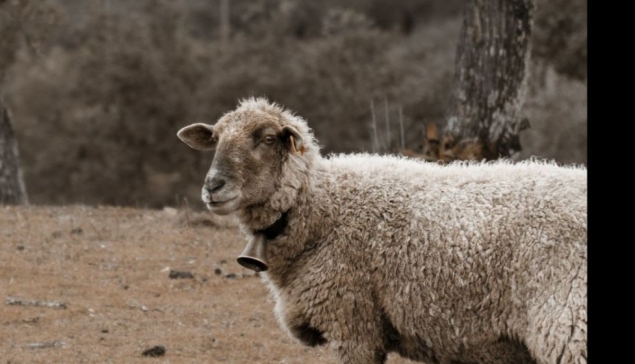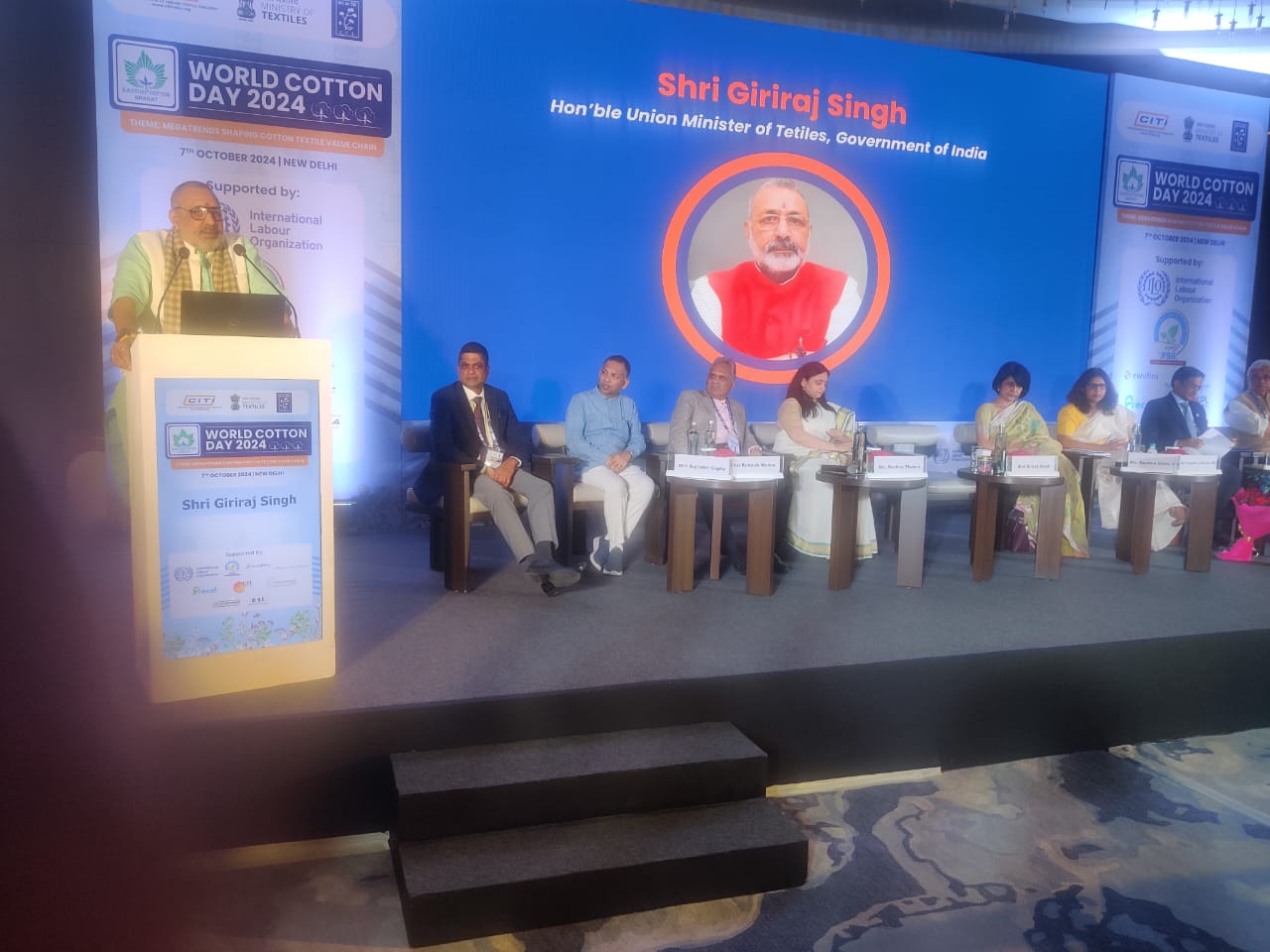The Confederation of Indian Textile Industry (CITI) hosted World Cotton Day 2024 on 7th October, celebrating it in a grand style, successfully bringing on board multi-stakeholders who's who from across the textile value chain viz industry leaders, policymakers, trade experts from Pan-India and overseas in New Delhi, against the backdrop of dynamically evolving cotton landscape.
Fashion Guru
The event opened powerfully with an encouraging and motivational keynote address by the Hon’ble Union Minister of Textiles, Giriraj Singh, who aptly underpinned India’s love and centuries-old cotton lineage, calling it the bedrock and spine of the textile industry including the nation’s economy.
He remarkably inspired and outlined the sector’s potential to drive rural employment and boost the national economy, outlining the government’s ambitious, bold vision of expanding India’s textile market to $350 billion by 2030, keeping cotton/this big piece of Indian textile at the front and centre.
Giriraj Singh took the opportunity to draw the attention of the entire textile value chain to the fundamental need to produce sustainable textiles starting from cotton production upwards in the supply chain where the government’s ongoing heavylifting efforts to help/ support farmers, enhance productivity, and protect the environment harnessing the collaborative and coherent sector's approach cannot be undermined.
Join our group
Rohit Kansal, Additional Secretary, Ministry of Textiles, Government of India, alluded by stating that today on the momentous occasion of World Cotton Day, is the most opportune juncture to not just look at our strengths inherent and visible in the cotton ecosystem but also to hard look at the challenges we face, and also see a critical need to deliberate on how we will meet and overcome them taking industry to the level next.CITI Chairman, Rakesh Mehra made strong points putting out the industry concerns to the policymakers present in the room aligned with the Minister’s vision and outlined many unsaid initiatives under CITI’s unparalleled leadership in advancing cotton research and sustainability to help the industry reach/model itself attaining respect it deserves in the global textile economy besides highlighting the key/ pivotal role of the CITI Cotton Development and Research Association (CDRA) wonderful project in shaping and driving disruptive innovations to attain consistent cotton quality and augment yield championing innovation and sustainability in cotton production.
Minister was very categoric in stressing the place Cotton enjoyed in Indian textiles for centuries referring to it as 'Simply it is more than a crop—it’s the true backbone of our textile industry' in particular and to the nation's economy in general, sustaining millions of livelihoods in this world's most populous nation.
He further stressed the merit of augmenting productivity where India ranks something around 33-34th world rank in cotton productivity, removing/rationalizing import duties, and working out on the need to solve supply chain bottlenecks/road bumps, we can cement positioning the Indian textile sector as a global textile leader in the times when the nation is been perceived as a bright spot and there are fundamental tailwinds like friend shoring, etc.,” said Rakesh Mehra.
Adding to this entire momentum of deliberations and intense discussions was Ms. Rachna Shah, Secretary, Ministry of Textiles (MoT) who was gracious to acknowledge the collective efforts trade is making to stay relevant, reinforcing the government and its department's deep commitment to support/ handhold the cotton sector wherever and whenever required.
She took great pain in highlighting key and timely administrative initiatives being undertaken to improve yields which remains a key concern given our cotton competing nations like Australia, Brazil, and the US that continue to be heads and shoulders above us in the cotton yield per acreage, pushing sector to adopt sustainable agricultural practices and provide technical advance support/ nuanced farming knowhow to farmers enhancing their capabilities to leapfrog in the future in the pursuit of making our cotton sector best in the class.
She underpinned the phenomenon of how presently Indian cotton sector is transforming and appreciated the role associations like 'CITI' are playing to facilitate putting a spotlight on the need to continuously boost productivity, mitigating the climate change threat impinging on the future of the Indian cotton sector by climate-resilient farming, and sustainable practices to secure sector's future and, gave a tribute to Indian farmers who are the backbone of Indian textile industry and their exemplary efforts in the face of adversities has a salutary effect on the sector, Ms. Shah remarked.
Some of the interesting features of the event that need attention are as follows:
* The session on the ‘Decent Work in the Cotton Supply Chain’ theme was deliberated in-depth highlighting trade insights on discovering ways and means to improve labour standards and welfare for workers/workforce across the cotton supply chain.
* An expert-led discussion on the ‘Evolving Trends in Cotton Farming’ alongside risk management phenomenon mitigating market volatility in one of the sessions was well discussed and deliberated demonstrating that cutting-edge/ new age tech advancements are capable of disrupting the sector, sustainable good practices, and climate-resilient crops and techniques embraced/adopted by Indian cotton farmers are creating an impact aimed at ensuring stable incomes for cotton growers and traders nationally.
The day it was
The most striking feature on this historic day was the signing of MoUs between Chairman, CITI-Rakesh Mehra, and Sunil Patwari – Chairman – TEXPROCIL to promote awareness amongst the entire spectrum of the sector to improve generically the quality of Indian cotton, aimed at ensuring farmers are big beneficiaries amongst the trade's multistakeholder from the Kasturi Cotton mark.
Fundamentally, the noble intent of this CITI's MoU is to create headroom for the optimization of cotton production across zones under the formal "CITI-CDRA Sustainability Program" currently underway.
Another proud moment was when Better Cotton Initiative (BCI), Jyoti Kapoor, Country Director – India signed an MoU to help achieve sustainably sourced cotton @ scale what they are best at, underscoring this as a cornerstone of the 'Kasturi Cotton initiative' in the journey of making it a global brand of repute.
CottonConnect, COO-Kinner Lakhani, having teamed up with TEXPROCIL for good to get started with the phenomenon of aligning farmers the key stakeholders in the textile value chain with stated 'Kasturi Cotton's quality standards' and cultivation practices, harnessing in effect responsible and fair work ethos improving materially farmer livelihoods making a real impact at the end of the day.
Trident Group, the country's leading textile player where Dr Pradeep Kumar Agarwal signed an MoU to avail in excess of 500,000 bales of 'Kasturi Cotton' through the next two cotton seasons, while another reputed textile player "Vardhman Group" pledged to process 21,000 bales in solidarity to this momentous initiative during the forthcoming season was commendable.
Additionally, the Clothing Manufacturers Association of India (CMAI)'s Chief Mentor, Rahul Mehta, also signed an MoU on this historic occasion taking it to the apparel side of the business to promote the brand among its worthy members, amplifying Kasturi Cotton’s presence across fashion and apparel platforms countrywide.
The Brands and Sourcing Leaders Association (BSL) is contemplating signing a nuanced MoU to catalyze and add momentum to the global marketing and branding initiative of 'Kasturi Cotton', whereby it is expected to use its catalytic expertise to align and integrate the cotton into contemporary fashion designs in the emerging new landscape of the world.
Left a mark
In summary, World Cotton Day 2024 served as a pivotal platform to highlight/ outline the most pressing issues, and challenges posed to the cotton sector today including flagging cotton production and drawing a visionary document mapping out a sustainable future for the global textile industry positioning India as a frontrunner in global textile economy given the opportunities knocking at India in the changing geopolitics where friend shoring and trusted suppliers tag India perceived to have earned and secured in recent years are fundamental tailwinds.
India's cotton industry goes back centuries and there is a great need to build a global brand out of "Kasturi Cotton" something as demonstrated by the likes of Supima cotton, Giza, and Brazil cotton thus making canvas large.
Net net collaboration..collaboration.. collaboration is the need of the day given that Indian textile is a complete supply chain although woefully fragmented and arguably there exists a complete disconnect preventing us from unlocking our true potential is where the future conversations in the trade discourse should be taken to with a strong sense of purpose changing the complexion of the sector making it proudly Indian.

